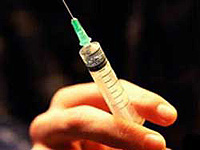Narcotic dependence - a disease characterized by pathological deposit to various psychoactive substances, the development of dependence and tolerance.
Content
The causes of narcotic dependence
The main cause of narcotic dependence is «deficiency syndrome
Satisfaction». This is a certain combination of genes in which
man hard to feel comfortable. Deficient people
satisfaction, since childhood, unconsciously seek ways to compensate
this lack of various types of behavior, and in adolescence or already
adult age at a certain coincidence often
resort to the help of psychoactive substances that help them get
desired pleasure and pleasure.
Also one of the reasons is «Wrong family», Where to upbringing
carried out either one of the parents or where is present
The having atmosphere, folding in the house, lack
Emotional intimacy and confidence of households to each other. There are I
Drug addicts, where one or both parents suffer from narcotic addiction. The probability of admission to bad addictions in children from such families increases by 2 times.
Types of narcotic dependence
- Mental;
- Physical;
- Tolerance.
Mental addiction - Painful aspiration
continuously or periodically take a narcotic or other
psychoactive drug in order to experience pleasant feelings either
Remove the phenomena of mental discomfort. It arises in all cases
systematic use of drugs, but maybe after
Single reception. Is the strongest psychological factor,
promoting regular drug receiving or other psychoactive
Tools.
Pathological mental dependence is presented by pathological
Inclusion to change its state by drug.
There are two types:
- Mental (permanent drug thoughts,
which are accompanied by the rise of mood, revitalizing in anticipation
his admission, depression, dissatisfaction);
- A compulsive (an indirect desire for anesthesia, the desire to get a drug, determines the behavior, actions of patients);
Physical addiction - Status of restructuring functions
the whole organism in response to chronic use of psychoactive
Substances. Manifested by severe mental and somatic
violations when disconnecting drugs. These violations are referred to as
Abstineent syndrome, cancellation syndrome or deprivation syndrome. They are
make easier or fully bought with a new introduction of the same
Drug. Clinical picture of abstinence syndrome under different types
Addiction different. Physical dependence develops in the process
chronic use of not all narcotic drugs (for example,
cocaine).
Tolerance - a state of adaptation to narcotic
or other psychoactive substances characterized by a reduced
reaction to the introduction of the same amount of drug when to achieve
Former effect requires a higher dose of the drug.
 The first stage of treatment of addiction
The first stage of treatment of addiction
includes the relief of the abstineent syndrome and holding
Disinfectants aimed at normalization
Somathological disorders and correction of mental disorders.
- On the
The second stage, treatment is aimed at full recovery of exchange
disorders, behavioral disorders and mental normalization
states (including sleep).
- The third stage of treatment is
identifying the main syndrome of mental dependence and conducting
targeted therapy. Meant definition
psychopathological design of pathological attraction for drugs and
features of its speakers (periodic, permanent).
- Fourth
The stage is to determine the conditions for the occurrence of relapses
diseases in order to appoint anti-relapse supporting
Therapia.
Drug deletion treatment implies complex
measures aimed at delivering a drug addict primarily from
physical dependence («Broke») and detoxification of the body. Only after
This is possible the process of treatment of dependencies,
implying the removal of mental dependence on narcotic
funds, conversations with patient, social adaptation and others
Psychotherapeutic techniques. In addition, if the first stage happens,
It is possible to spend at home, then for effective treatment from
Drug addiction is usually needed hospitalization
Patient.









